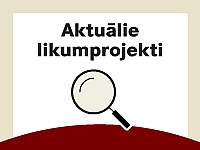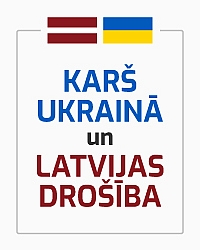Pirmdien, 27.oktobrī, Saeimas Eiropas lietu komisijas priekšsēdētāja Vaira Paegle un Gruzijas parlamenta Eiropas integrācijas komitejas priekšsēdētājs Dāvids Darčiašvili (David Darchiashvili) parakstīja sadarbības memorandu par Saeimas Eiropas lietu komisijas un Gruzijas parlamenta Eiropas Savienības integrācijas komitejas sadarbību jomā, kas saistīta ar Gruzijas integrāciju Eiropas Savienībā.
Saprašanās memorands
par Latvijas Republikas Saeimas Eiropas lietu komisijas un Gruzijas parlamenta Eiropas Savienības integrācijas komitejas sadarbību jomā, kas saistīta ar Gruzijas integrāciju Eiropas Savienībā
Latvijas Republikas Saeimas Eiropas lietu komisija un Gruzijas parlamenta Eiropas Savienības integrācijas komiteja,
atzinīgi novērtējot Latvijas Republikas un Gruzijas draudzīgās attiecības un aktīvo abu valstu politisko dialogu, kā arī atzīstot to, ka attiecības ar Gruziju ir viena no Latvijas attīstības sadarbības politikas prioritātēm,
atzinīgi novērtējot līdzšinējo veiksmīgo un aktīvo Saeimas un Gruzijas parlamenta sadarbību jomā, kas saistīta ar Gruzijas integrāciju Eiropas Savienībā,
apzinoties Gruzijas nozīmi demokrātisko reformu un brīvā tirgus attīstības veicināšanā bijušās Padomju Savienības teritorijā,
atzinīgi novērtējot Eiropas Savienības Padomes lēmumu iekļaut Gruziju Eiropas kaimiņattiecību politikā, kā arī 2006.gada 14.novembrī Eiropas Savienības un Gruzijas sadarbības padomes apstiprināto Eiropas kaimiņattiecību politikas Rīcības plānu,
atzinīgi novērtējot 2008.gada 22.oktobrī notikušās Starptautiskās donoru konferences lēmumu palīdzēt Gruzijai pēc militārajiem uzbrukumiem atjaunot ekonomiku un stiprināt demokrātiskās institūcijas,
atzinīgi novērtējot 2008.gada 1.oktobrī uzsākto Eiropas Savienības novērošanas misiju Gruzijā,
atzinīgi novērtējot Eiropas kaimiņattiecības politikas Rīcības plāna Īstenošanas plāna pieņemšanu un tā ietvaros sasniegto progresu un atzīstot Gruzijas parlamenta lielo nozīmi šajā procesā,
atzinīgi novērtējot Saeimas vēlmi dalīties ar Gruzijas kolēģiem zināšanās un pieredzē, kas gūta ceļā uz dalību Eiropas Savienībā,
paužot pārliecību, ka nacionālajiem parlamentiem ir liela nozīme valstu integrācijā Eiropas Savienībā un tie ir būtiski veiksmīga, pārskatāma un demokrātiska integrācijas procesa nodrošināšanas elementi,
vienojas, ka:
sadarbosies, lai palīdzētu Gruzijas parlamentam un īpaši tā Eiropas Savienības integrācijas komitejai tikt galā ar darba uzdevumiem, kuru izpilde ir nepieciešama veiksmīgai Gruzijas valdības un Eiropas Savienības noslēgto līgumu īstenošanai, īpašu uzmanību pievēršot Eiropas Savienības un Gruzijas Eiropas kaimiņattiecību politikas Rīcības plānam,
sadarbosies, lai uzlabotu Gruzijas lēmumu pieņēmēju, viedokļu veidotāju un sabiedrības informētību Eiropas jautājumos, jo īpaši intensificējot abu parlamentu Eiropas Savienības informācijas centru sadarbību,
sadarbosies, lai uzlabotu Latvijas, kā arī Eiropas sabiedrības un pilsonisko iestāžu informētību un izpratni par Gruzijas iekšpolitikas un ārpolitikas, ekonomikas un drošības īpatnībām, kas ietekmē Gruzijas un Eiropas Savienības attiecību attīstību,
sadarbosies, lai atbalstītu tos Gruzijas parlamenta mehānismus un institūcijas, kas ir atbildīgi par nacionālo likumu un Eiropas Savienības tiesību aktu saskaņošanu, un pilnveidotu Gruzijas parlamenta un valdības funkciju sadalījumu sadarbības formātus likumdošanas saskaņošanā,
palīdzēs nodibināt tiešus sakarus starp attiecīgajām parlamentu komitejām, kā arī stabilas abu parlamentu darbinieku savstarpējās attiecības un sadarbību,
veicinās abu valstu valdību un pilsoniskās sabiedrības sadarbību Eiropas Savienības integrācijas jomā,
izveidos ietvaru sadarbībai Eiropas Savienības integrācijas jomā arī ar citu Eiropas kaimiņattiecību politikā iesaistīto valstu parlamentiem,
izstrādās sadarbības programmas un projektus, lai sasniegtu progresu šajā memorandā minētajās jomās, un centīsies panākt to īstenošanai nepieciešamo Eiropas Savienības vai citu palīdzības programmu finansējumu.
Memorandum of Understanding
on Co-operation between the European Affairs Committee of the Saeima of the Republic of Latvia and the on European Integration Committee of the Parliament of Georgia concerning Integration of Georgia into the European Union
The European Affairs Committee of the Saeima of the Republic of Latvia and the European Integration Committee of the Parliament of Georgia
welcoming friendly relations between the Republic of Latvia and Georgia, as well as the progress achieved in their political dialogue, and recognizing the priority of the relations with Georgia for Latvia’s development cooperation policy;
welcoming previous successful and intensive cooperation between the Saeima and the Parliament of Georgia concerning the integration of Georgia into the European Union;
acknowledging the role that Georgia plays in promoting democratic reforms and free market development in the post-Soviet territory;
welcoming the decision of the European Council to include Georgia in the European Neighbourhood Policy and welcoming the endorsement of the EU-Georgia European Neighbourhood Policy Action Plan approved by the EU-Georgia Cooperation Council on 14 November 2006;
welcoming the decision of the International Donors Conference of 22 October 2008 to assist Georgia in rebuilding its economy and strengthening democratic institutions after the Russia’s military attack;
welcoming deployment of a civilian European Union Monitoring Mission in Georgia on 1 October 2008;
welcoming the adoption of the Implementation Plan of the European Neighbourhood Policy Action Plan and the progress achieved in this regard and also especially welcoming the important role of the Parliament of Georgia in this process;
welcoming the willingness of the Saeima to share with their Georgian colleagues the knowledge and experience acquired in the course of EU membership;
being convinced that national parliaments play important role in the process of integration of a country into the European Union and that parliaments are crucial elements in ensuring a successful, transparent and democratic integration process;
agree on the following:
to cooperate in supporting the work of the Parliament of Georgia and especially the Committee on EU Integration in order to enable it to perform its tasks for the successful fulfilment of the agreements entered into by the Government of Georgia and the European Union, especially focusing on implementation of the EU-Georgia European Neighbourhood Policy Action Plan;
to cooperate in increasing awareness of Georgia’s decision makers, opinion shapers and the public at large about European issues, especially by increasing cooperation between the EU Information Centres of both parliaments;
to cooperate in increasing awareness and understanding in the Latvian, as well as European public and civil institutions about the distinctives of the Georgian internal and external political, economic and security environment which influence the pace of relations between Georgia and the EU;
to share the Saeima’s experience in the field of EU integration and the approximation of national legislation to the European standards;
to cooperate in supporting mechanisms and institutions within the Parliament of Georgia responsible for harmonisation of the legislation to that of the EU and in improving the assignment of roles and the tools of cooperation between the Parliament and the Government of Georgia on legislative harmonisation;
to contribute in establishing direct ties between the relevant parliamentary committees and in forming stable relations and cooperation between the staff of the two parliaments;
to foster cooperation between the governments and civil society of both countries in the field of EU integration;
to develop a framework for cooperation in the field of EU integration also with the national parliaments of other European Neighbourhood Policy countries;
to develop cooperation programmes and projects with the aim to achieve progress in fields covered by this Memorandum and to seek funding for their implementation from the EU and other assistance programmes.
Preses dienests









